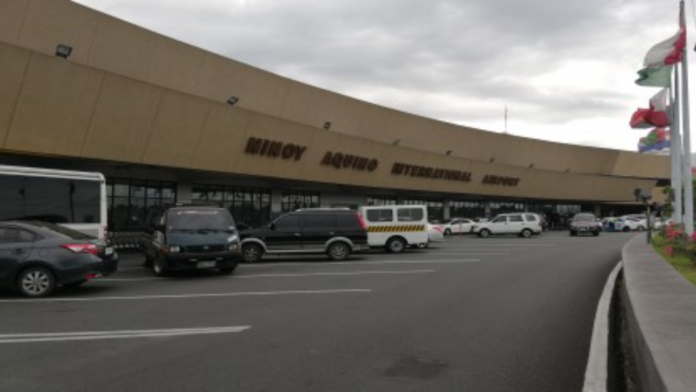Lawmakers and a senior administration official on Sunday urged the Department of Transportation (DOTr) to heed the advice of the Asian Development Bank (ADB) to extend the bidding for the Ninoy Aquino International Airport (NAIA) rehabilitation project for one month to ensure due diligence and avoid monopoly.
In separate interviews, Manila Rep. Rolando Valeriano, OFW Party-list Rep. Marissa Magsino and Presidential Adviser on Poverty Alleviation Larry Gadon all stressed that ADB’s position should not be ignored, but instead followed, as it would be for the best interest of the government and the public as well.
Valeriano said extending the deadline would give the DOTr an opportunity to “choose the most qualified to do the project.”
“Sa ganito pong mga proyekto bihasa ang ADB (ADB is well versed in projects like this),” Valeriano, chairperson of the House Committee on Metro Manila Development, said in a news release. “Malaking halaga ang nakataya (A big amount is involved). Due diligence is a must.”
If the Dec. 27 deadline is followed, the DOTr stands to be accused of favoring only two prospective bidders and rigging the process, according to the officials.
“We strongly believe that extending the bid submission date would attract more bids, thus resulting in greater competition and a better financial outcome for the government… It would also send a strong statement that the government is committed to ensuring a level playing field for all investors, now that recent reforms allow local and foreign investors to compete for NAIA on the same terms, without foreign ownership restrictions,” the ADB explained in its memo.
Magsino stressed that the one-month extension in the bidding for the project “will be more beneficial.”
“If extending the deadline for proposals on these plans will allow the government to choose from more reputable companies and secure the most cost-effective agreement, then the one-month delay eventually will be more beneficial,” Magsino said.
“The only thing we want to ensure in whatever decision the government will make is that the people will not be shortchanged. The option we will take must vastly improve the services of NAIA, solve capacity issues, upgrade the technology infrastructure, and ensure steady and reliable operation for the benefit of air passengers, especially our OFWs (overseas Filipino workers),” she added.
In an internal memo previously obtained by the media, the ADB proposed that the bidding be extended from Dec. 27 to Jan. 29, 2024, primarily to allow potential bidders more time to prepare and participate.
It said that increased competition will ensure better financial outcome for the government.
The ADB memo noted that at least four more bidders for the project are seeking the extension.
Gadon, meanwhile, pointed out that the extension proposed by the ADB is called for, especially in the light of the fact that the original deadline will marginalize other potential bidders.
“I agree to the proposed extension as it will give more time to potential proponents in coming up with a more realistic terms of bid that would become more advantageous for the government and, ultimately, to the public,” Gadon said.
“The rehabilitation is highly complex and technical. Issues might come up during construction and renovation works which may turn out critical (and) which could be prevented by constantly reviewing all aspects of work,” he added.
ADB likewise reasoned out that the extension aligns with the government’s commitment to encourage new players and foreign investment in Philippine public-private partnerships and is aimed at fostering competition without causing undue delays to NAIA’s modernization.
Magsino said the DOTr leadership must seriously consider the proposal and heed the clamor from stakeholders and government leaders to have the deadline extended.
“We believe the leadership of the Department of Transportation and the Manila International Airport Authority (MIAA), in coordination with the National Economic Development Authority, have exhaustively studied the pros and cons of the rehabilitation and expansion of NAIA through concession agreements, as well as the advantages and disadvantages of privatized operations for our international airports… Lastly, we hope the winning proposal will not result in higher terminal fees for air passengers. The government must retain its authority in the pricing of fees,” she said.
Eight firms bought bid documents for the project — Asian Airport Consortium, Turkish firm Cengiz Insaat Sanayi ve Ticaret A.S., South Korea’s Incheon International Airport Corp., India’s GMR Group, Turkish conglomerate Limak Holding A.S., Manila International Airport Consortium, San Miguel Corporation, and Spark 888 Management Inc.
The DOTr and MIAA began the bidding process for the contract involving the rehabilitation, expansion, and operation of NAIA in August.
The project seeks to address long-standing capacity issues, increase the airport’s annual capacity to at least 62 million passengers from 35 million.
The winning bidder will have 15 years to rehabilitate the airport’s passenger terminals and airside facilities, develop commercial assets and utility systems, and provide surface access facilities, among other responsibilities.
The concession agreement also allows for a possible 10-year extension. (PNA)


